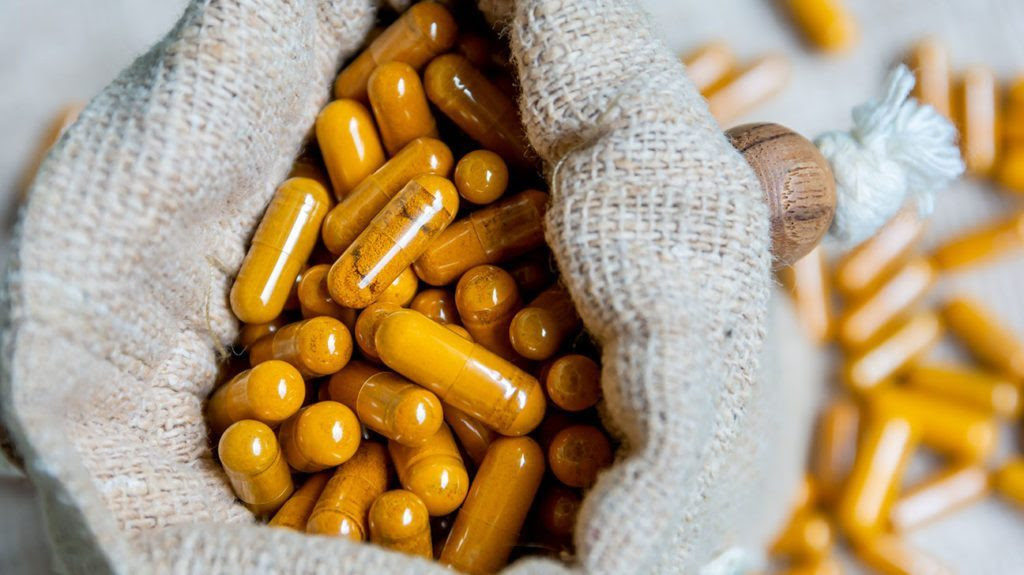While pain relievers and hormonal drugs are the first line of treatment for endometriosis, these options have many side effects. Some people choose to try herbs as a complementary therapy.
Endometriosis is a chronic medical condition that causes tissue similar to the uterine lining to grow outside of the uterus. Known as endometrial implants, they grow and bleed in response to hormones.
Symptoms of endometriosis include pelvic pain, heavy periods, pain during sex, back pain, nausea, and more.
In this article, learn about possible herbal remedies for endometriosis, whether they work, and what the medical treatment options are.
Do they work?

Research into using herbal remedies to treat endometriosis is in the early stages.
Proponents of herbal medicine argue that herbal remedies can regulate estrogen levels, slow the growth of endometriosis implants, or ease pain.
No studies, however, have determined precisely how herbal remedies work. Instead, research has focused on whether certain supplements can reduce symptoms.
Endometriosis is an estrogen-dependent condition, which means that estrogen aggravates the growth and inflammation of the implants, making the condition more painful. The menstrual cycle’s normal changes in estrogen levels lead to increased symptoms.
Research suggests that some herbal remedies for endometriosis may improve symptoms, either when a person takes these herbs alone or in combination with other drugs.
This research is still in the early stages, and some studies have not been well-designed or well-controlled. For this reason, herbal remedies remain an alternative treatment, not the primary treatment.
Some herbal remedies that may help include:
Curcumin
Curcumin, which is a derivative of turmeric, may help regulate a person’s hormones, slowing the growth of endometrial adhesions.
The authors of a 2013 study looked at endometrial cells in a laboratory setting. They found that curcumin could suppress estradiol (a type of estrogen), thereby slowing endometrial cell growth.
Not all research that gets results in a petri dish replicates these results in a human body. However, this study points to the need for more research in this area.
Scientists are now beginning to understand how this might work, as they have found that curcumin directly decreases inflammation by reducing the triggering action of the messenger proteins that begin the inflammation response.
Vitex
Vitex, which comes from the chaste tree, is a traditional remedy for gynecological conditions.
According to a 2016 review, studies in lab settings show that vitex may change the behavior of estrogen receptors.
The authors suggested that, in the future, the compound could help treat symptoms of menstrual irregularities, breast pain, and premenstrual syndrome (PMS).
Other 2019 research found it could affect infertility in endometriosis, but that its effect on hormones was still undetermined.
Pine bark
According to a 2014 study published in the International Journal of Women’s Health, pine bark may act as an anti-inflammatory agent. As inflammation is a key part of endometriosis, researchers have looked into whether it could affect the condition.
Most research has looked specifically at a pine bark-derived commercial product called Pycnogenol.
The study found that Pycnogenol could work with oral contraceptives to reduce endometriosis pain. It is important to note that participants just taking the contraceptives also experienced a reduction in pain.
Chamomile
Chamomile is a popular herb because of its soothing properties. A 2018 laboratory study showed how chrysin, which is a substance in chamomile, killed endometriosis cells.
It also changed the cells’ life cycle, which suggests chrysin may change the way endometrial cells grow.
The study looked at cells in a lab setting, not a human body. The results might be different in a person.
Lavender
Lavender is a common garden herb that many people use to encourage relaxation and sleep.
Research from 2015 indicates that lavender essential oil could help reduce pain during menstruation. In the study, participants received a massage with diluted lavender essential oil.
The study included a control group who received a massage without lavender, but the lavender group had lower pain scores afterward.
How to use
Herbal remedies are supplements, not prescription drugs. This means there is no approved method for taking them and no standardized dosage that works for everyone.
Some strategies for taking herbs for endometriosis include:
Use herbs as a supplement to traditional treatments, rather than as a replacement.
Follow the package or manufacturer’s instructions. Do not exceed the dosage on the packaging. Call a doctor if someone takes too much — natural remedies can still be toxic.
Start with one herb at a time. This makes it easier to monitor results and detect side effects.
Like any medication, herbal supplements may cause side effects and interact with other drugs. Always talk to a doctor before trying new herbal remedies.
Medical treatment
No treatment can cure endometriosis. Instead, treatment focuses on managing pain, heavy bleeding, infertility, and other possible symptoms. A doctor will guide a person to the best management of endometriosis depending on their age, history, and whether they still want to be able to get pregnant.
Some options for managing endometriosis pain include:
Pain medication. Some people find relief with over-the-counter pain medication, while others need prescription pain pills. In 2018, The Food and Drug Administration (FDA) approved a new drug, Orilissa, to target endometriosis pain symptoms.
Hormone treatment. Hormones that reduce estrogen levels or regulate a person’s period may help relieve symptoms. Options include combined contraceptive pills, progestin-only pills, and intrauterine devices (IUDs).
Surgery. A skilled surgeon can remove endometriosis implants and repair any damage. A newer surgical treatment severs nerves in the pelvis to reduce pain sensations. Some people choose to have a hysterectomy to stop heavy bleeding, but it does not remove all endometriosis symptoms.
If endometriosis affects a person’s fertility and they want to get pregnant, options include surgery and in vitro fertilization (IVF).

Leave a Reply